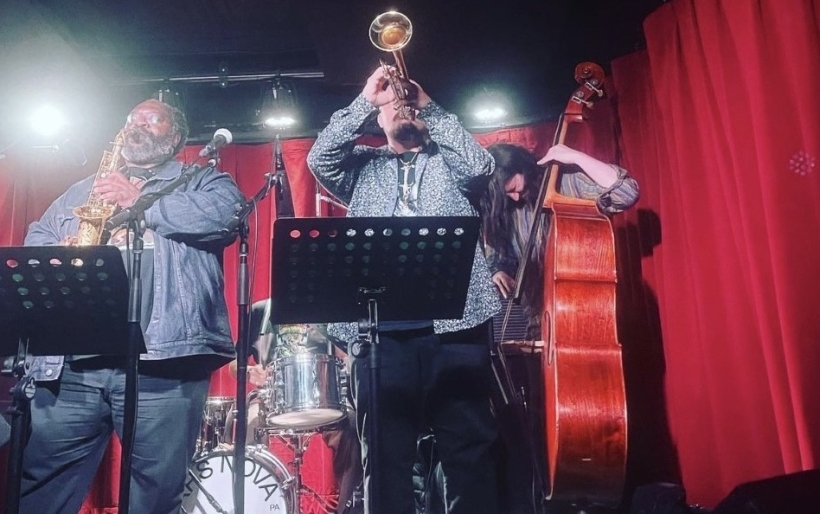When Philly-born bandleader and composer Giuseppi Logan joined the ancestors in April 2020, he left us with a rich legacy of bold and adventurous music. A conservatory-trained musician and multi-reedist — he played alto and tenor saxophone, bass clarinet, flute, piano and oboe, among other instruments — Logan moved to New York in the mid-1960s. At the time, New York was ground zero for the free-jazz/avant-garde revolution and Logan would find a home and fellowship within that community.
During this period he would perform and record with a who’s-who of progressive jazz giants like Cecil Taylor, Roswell Rudd, Don Pullen, Archie Shepp, Bill Dixon and Pharoah Sanders. Logan’s recordings from this period, 1964’s The Giuseppi Logan Quartet and 1966’s More feature some of the most daring compositions and open-earned playing that jazz has ever produced. After vanishing from the music scene in the 70s, Logan remained out of the spotlight for decades until he reemerged in the later part of the 2000s with his skill still firmly intact.

Giuseppi Logan | via Ars Nova
On Sunday, May 13th, a small crowd of music lovers gathered at Solar Myth on South Broad street for a tribute show organized in Logan’s honor. Performing Logan’s old compositions, the quintet of Matt Lavelle on alto clarinet, Darius Jones on saxophone, pianist Dave Burrell, bassist Pete Dennis and drummer Bobby Kapp took to the stage for a set that burned with all of the power and playful experimentation that Logan was known for. The band’s performance of “Dance Of Satan” was particularly strong as Darius Jones’ solo was bursting with fiery lines with power. Lavelle’s solo was equally fresh and potent as he conjured up unimaginable sounds from his instrument. When the ensemble fell in to play the tune’s staccato main melody in unison, the room became full with fury and beauty.
The next song, “Steppin,” opened with a lonesome piano chord progression while the reeds played a bittersweet melody together sweetly. Burrell delivered a slow entrancing motif with chords as Dennis’ bass picked up the tempo. Kapp’s brushwork worked well here, as his beat seemed to signal and quickly react to what Dennis and Burrell were playing perfectly.
Between tunes, Lavelle and crew took to the mic to address the crowd, sharing their own thoughts about Logan and reading loving messages of respect and adoration written by friends, collaborators and relatives. These messages were beautiful, as they not only called attention to Logan’s stature as a musical innovator, they spoke to his heart, spirit and sensitivity as a man. Music is a powerful vehicle for self-expression. We literally use our hands, feet, mouths and breath to articulate the truth that lives inside us. Despite this, the music is still just a vehicle and it is the human spirit that music gives voice to is the priority. The memories, stories and appreciation shared in Giuseppi Logan’s honor on Sunday night were a reminder of his true power and legacy.

Giuseppi Logan tribute | photo by Matt Lavelle | courtesy of Ars Nova Workshop
